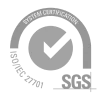A ZK-SNARK, short for Zero-Knowledge Succinct Non-Interactive Argument of Knowledge, is a cryptographic technique used to prove possession of certain information without revealing that information itself. In the context of cryptocurrencies like Ethereum, ZK-SNARKs are used for privacy and scalability purposes.
Below is a breakdown of what each part of the term means:
Zero-Knowledge: This means that one party (the prover) can prove to another party (the verifier) that they know a certain piece of information without revealing the actual information itself. In other words, the prover can convince the verifier that a statement is true without disclosing any additional information beyond the fact that the statement is true.
Succinct: This refers to the proof being short and easy to verify. Even though the proof may involve complex computations, it can be verified quickly without needing to redo those computations.
Non-Interactive: In a non-interactive proof, the prover generates the proof once and the verifier can check it without needing to interact further with the prover. This is important for efficiency and scalability in blockchain systems.
Argument of Knowledge: This indicates that the proof demonstrates not just that a statement is true, but also that the prover knows why it’s true (i.e., they possess the necessary information or secret).
ZK-SNARKs are particularly valuable in blockchain technology because they allow for transactions or smart contracts to be verified without revealing the underlying details. Their small proof sizes and constant-time verification ensure consistent authentication speed, regardless of the complexity of the statement being proved. ZK-SNARKs enhance privacy on the blockchain while still maintaining integrity and security.




